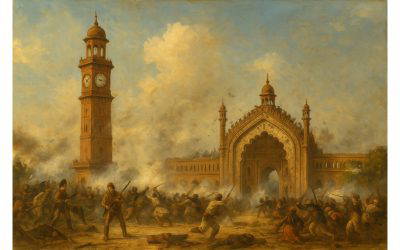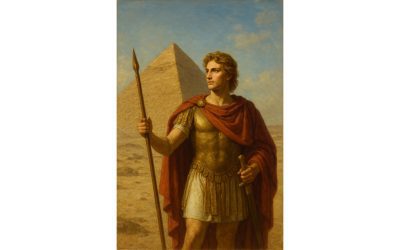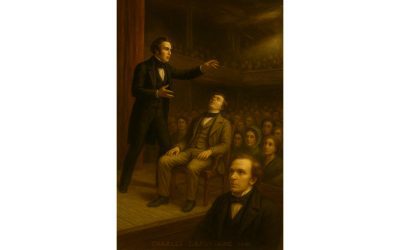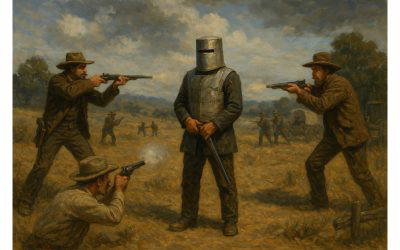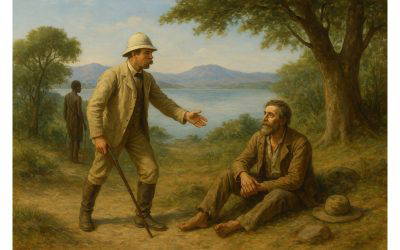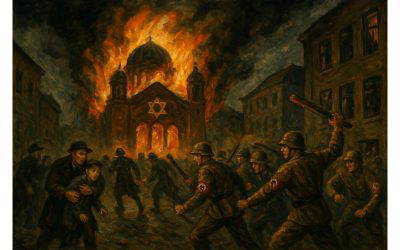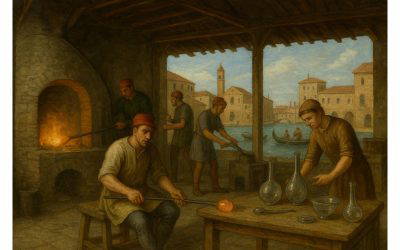Lucknow
The second relief of Lucknow on the 16th of November, 1857, holds the record for the most Victoria Crosses awarded in a single day. Twenty-three were awarded for valour at the second relief of Lucknow, and one at an action south of Delhi. The Second Relief of Lucknow...
League of Nations
On the 15th of November, 1920, the first assembly of the League of Nations was held in Geneva.The League of Nations was an intergovernmental organisation established after the First World War with the primary aim of maintaining global peace and preventing future...
Pharaoh
On the 14th of November, 332 BCE, Alexander the Great was crowned pharaoh of Egypt, but I recently wrote about him. Also on 14th of November Moby Dick was published in the USA in 1851, but I have also written about that. So I have decided to write about the pharaohs...
Hypnotism
When I saw James Braid crop up in Wikipedia’s list for the 13th of November my immediate thought was of the golfer, one of the Great Triumvirate, with Harry Vardon and John Henry Taylor. But this James Braid saw a demonstration of animal magnetism by Charles...
Modern Times
No not the Charlie Chaplin film. It’s just that the events I’m looking at for the 12th of November seem to be tilted towards modern times, rather than events of Sir Anthony Standen’s era. There isn’t much to link to my books. So what do we have? 1912 - the frozen body...
Ned Kelley
On the 11th of November, 1880, the notorious bushranger, Ned Kelley was executed. I have posted about American outlaws, but haven’t touched Australia yet, so here goes. Ned Kelly, one of Australia’s most infamous historical figures, was an outlaw whose life and...
Doctor Livingstone, I presume?
On the 10th of November, 1871, Henry Morton Stanley found the missing explorer and missionary, David Livingstone in Ujiji close to Lake Tanganyika. This encounter symbolised the meeting of two worlds: the driven, resourceful journalist and adventurer sent on a mission...
Kristallnacht
Kristallnacht shattered the lives of Jews across Nazi Germany on the night of the 9th/ 10th of November, 1938. The immediate pretext for Kristallnacht was the assassination of Ernst vom Rath, a German diplomat in Paris, by a 17-year-old Polish-Jewish refugee named...
Murano
Wikipedia tells me that on the 8th of November, 1291, the Republic of Venice enacted a law that confined most of Venice’s glassmakers to the island of Murano. Venice features as a setting in Fire and Earth, the second book in the Sir Anthony Standen Adventures. Murano...
Lucknow
The second relief of Lucknow on the 16th of November, 1857, holds the record for the most Victoria Crosses awarded in a single day. Twenty-three were awarded for valour at the second relief of Lucknow, and one at an action south of Delhi. The Second Relief of Lucknow...
League of Nations
On the 15th of November, 1920, the first assembly of the League of Nations was held in Geneva.The League of Nations was an intergovernmental organisation established after the First World War with the primary aim of maintaining global peace and preventing future...
Pharaoh
On the 14th of November, 332 BCE, Alexander the Great was crowned pharaoh of Egypt, but I recently wrote about him. Also on 14th of November Moby Dick was published in the USA in 1851, but I have also written about that. So I have decided to write about the pharaohs...
Hypnotism
When I saw James Braid crop up in Wikipedia’s list for the 13th of November my immediate thought was of the golfer, one of the Great Triumvirate, with Harry Vardon and John Henry Taylor. But this James Braid saw a demonstration of animal magnetism by Charles...
Modern Times
No not the Charlie Chaplin film. It’s just that the events I’m looking at for the 12th of November seem to be tilted towards modern times, rather than events of Sir Anthony Standen’s era. There isn’t much to link to my books. So what do we have? 1912 - the frozen body...
Ned Kelley
On the 11th of November, 1880, the notorious bushranger, Ned Kelley was executed. I have posted about American outlaws, but haven’t touched Australia yet, so here goes. Ned Kelly, one of Australia’s most infamous historical figures, was an outlaw whose life and...
Doctor Livingstone, I presume?
On the 10th of November, 1871, Henry Morton Stanley found the missing explorer and missionary, David Livingstone in Ujiji close to Lake Tanganyika. This encounter symbolised the meeting of two worlds: the driven, resourceful journalist and adventurer sent on a mission...
Kristallnacht
Kristallnacht shattered the lives of Jews across Nazi Germany on the night of the 9th/ 10th of November, 1938. The immediate pretext for Kristallnacht was the assassination of Ernst vom Rath, a German diplomat in Paris, by a 17-year-old Polish-Jewish refugee named...
Murano
Wikipedia tells me that on the 8th of November, 1291, the Republic of Venice enacted a law that confined most of Venice’s glassmakers to the island of Murano. Venice features as a setting in Fire and Earth, the second book in the Sir Anthony Standen Adventures. Murano...

